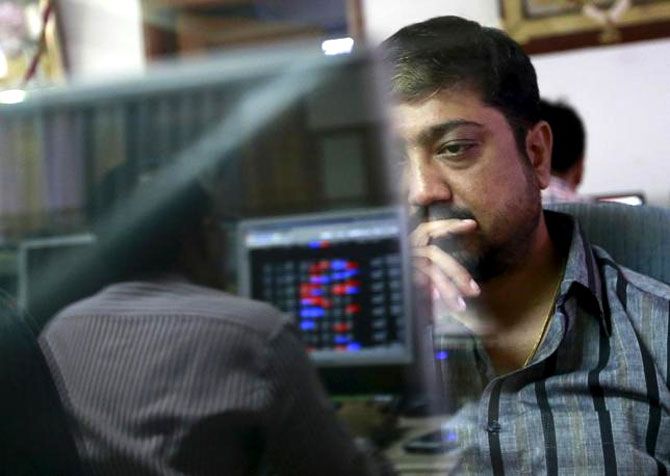The Nifty is up 6.5% in the last 12 months.
The NSE IT Index is down 10% in the same period.
Is the sentiment about to turn?
Devangshu Datta has the answers.

For almost two decades, the information technology (IT) sector has been the traditional hedge when the rupee is under stress.
It has always been a high-growth play on the US economy (and to a lesser extent on Europe and other First World economies). But, there are fears that relationship is breaking down.
First, growth in the IT industry has slowed. Most Indian companies have not yet adapted to the cloud; to artificial intelligence; and to business models like software as a service.
The old model of simply adding personnel no longer works.
When it comes to these new technologies, Indian IT companies may not possess a competitive advantage.
Bulgarians and Ukrainians for example, are decent programmers, and competitive in terms of cost.
Second, attempts to diversify into Europe have been impacted severely by Brexit.
Several Indian IT majors were using a strategy that involved being based in the UK to fish for business across the euro zone.
English may remain an official language of the EU (the Irish use it for instance) on pragmatic grounds.
But Brexit means that those companies will have to relocate headquarters (maybe to Ireland) to maintain access.
In addition of course, the EU is in poor shape.
Third, despite lots of talk, there has not been too much movement on the ground in terms of digital India. Smart cities remain a concept in the making.
GST (which would create need for a connected digital infrastructure) may be delayed.
Digital India will happen for sure, but it may be delayed by several years in terms of timelines.
Fourth, there is real fear that access to US markets may be affected by the new administration.
Nobody knows, perhaps not even the new President-elect himself.
Quotas for work visas could be reduced; there could be countervailing punitive taxes on off-shoring.
In addition, major US clients will delay IT deployments until the Trump administration firms up its tax, banking and financial sector policies.
All this adds up to bad news for the IT industry just when the rupee is trading close to historic lows and expected to fall further.
The effects of this uncertainty have shown up in capital flows.
The Nifty is up 6.5% in the last 12 months. The NSE IT Index is down 10% in the same period.
This is actually extraordinary since TCS, Infosys, Wipro, HCL Tech and Tech Mahindra are all constituents of the Nifty 50 as well as being five of the leading constituents of the 10-stock IT index.
These stocks have all lost ground and indeed, domestic mutual funds have reduced their exposure to several IT majors.
In terms of averaged valuations, the IT index is now considerably cheaper than the Nifty.
The Nifty trades at a PE of 21-plus while the IT Index is down to a PE of 15-16.
This is still rather high, given low growth but the IT industry does have certain strengths that it is worth emphasising.
First, the industry is run by very smart people who understand the American environment very well and it is embedded into the US business ecosystem.
It has survived previous threats of reduced access. It might be able to adapt to the technological changes reasonably quickly.
The dollar should rise versus the rupee and that means whatever revenues accrue will look better.
Finally, many of these uncertainties could reduce over the next three to six months as the new administration takes charge.
Will all this be enough to spark renewed interest? I don't know. But in historical terms, the industry has rarely traded at lower valuations. That is worth thinking about.











